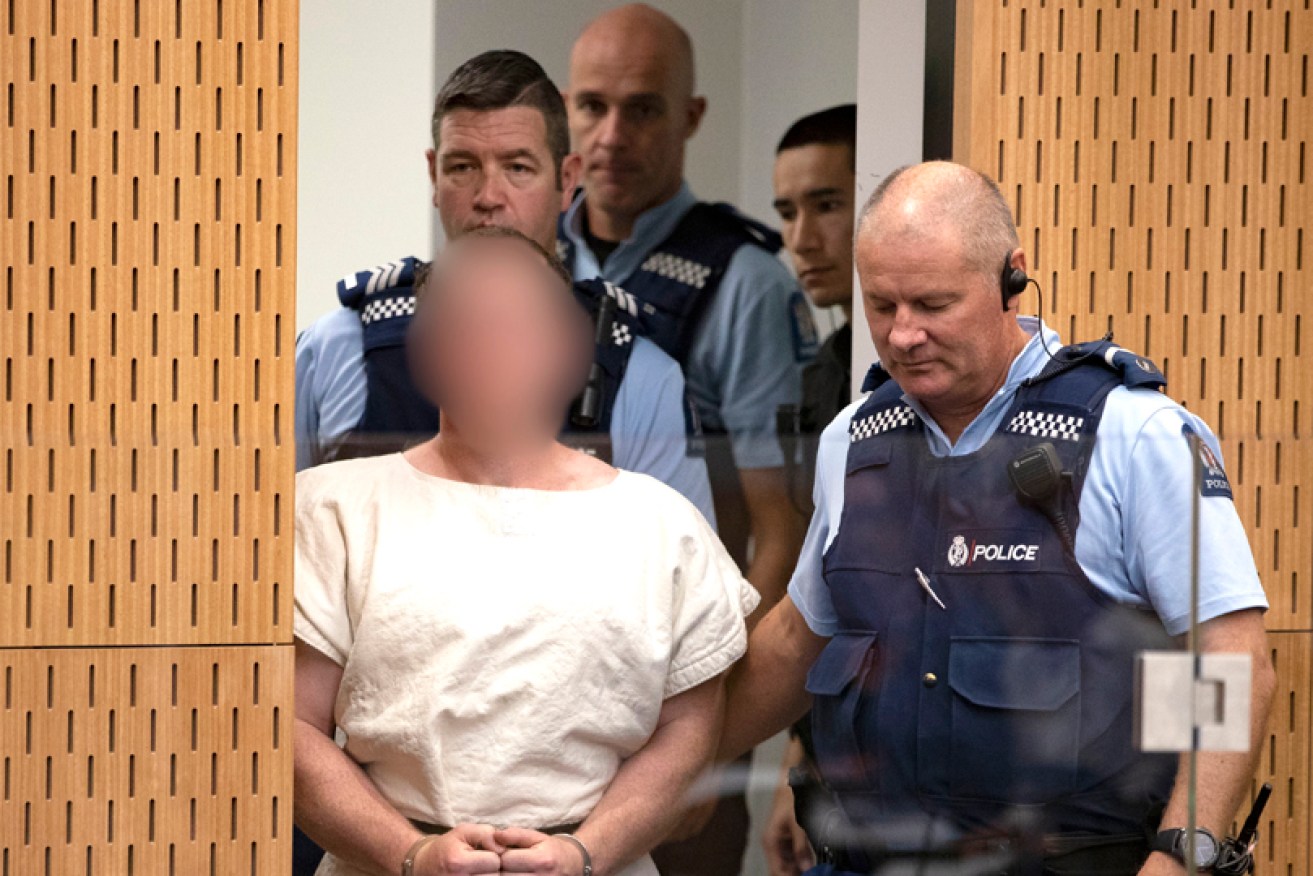Accused mosque killer might face deportation to Australia


Brenton Tarrant is due to appear again in court on April 5. Photo: AAP
Accused Christchurch mosque killer Brenton Harrison Tarrant could be deported to Australia to serve out his sentence if he is convicted.
Foreign Affairs Minister Marise Payne confirmed on Monday that Australia would consider the request after New Zealand Prime Minister Jacinta Ardern raised the idea.
“The legal proceedings, trial and the adjudication of these horrific crimes will go through its processes in New Zealand,” Senator Payne said.
“We would have those discussions with New Zealand, if and when the time comes. We have the closest of relationships.
“Questions to be raised after that in relation to the location of anyone who is convicted out of this process, they would be dealt with according to the normal processes.
“But the Prime Minister of New Zealand, as I understand it, has also made clear that the trial process will take place in New Zealand, as you would expect them to.”
Tarrant so far faces one charge of murder but is expected to face more. He is being held in a special security facility before his next court appearance on April 5.
Reports emerged on Monday that Tarrant plans to represent himself in court.
Richard Peters, the duty lawyer who represented him in court on Saturday, confirmed to the New Zealand Herald that he was no longer acting for Tarrant.
He said Tarrant appeared to be lucid and was not mentally unstable – other than his extreme views.
The death toll from Friday’s mosque shootings stands at 50. Twelve others, including a young child, are still in a critical condition in hospital.

Ms Ardern at a meeting with Muslims in Christchurch on Saturday. Photo: AAP
Ms Ardern said on Monday there was “no place” for such an extremist in her country.
“I don’t want to go too far down that track while we’re obviously in early stages. Charges have been laid, we can expect additional charges … so there’s obviously a process that needs to be gone through here,” she said.
“But I can say I am seeking advice on what will happen thereafter.”
Ms Ardern has not clarified if she will seek a deportation order for Tarrant before a sentence is served or after – which might be decades away.
She also announced that the NZ cabinet had offered in-principle support for toughening the country’s gun laws.
Details of the proposed changes will be announced before cabinet meets again next week.
As an Australian citizen, Tarrant did not require a visa to enter New Zealand.
As the National Security Committee met on Monday to discuss the threat of white supremacists and right-wing extremists, Home Affairs Minister Peter Dutton noted Tarrant had spent little time in Australia recently.
“From the advice I have … this individual has only had 45 days in Australia in the past three years,” Mr Dutton said.
“He’s travelled extensively overseas since, as I am advised, 2010. They are working very closely to put a picture together of what happened when he was overseas.”
Asked why Tarrant wasn’t on a terror watch list, Mr Dutton said it might be a simple reflection of how little time he had spent here in recent years.
“We look at our situation all the time in our country, as New Zealand will theirs,” he said.
Mr Dutton said it was “frankly disgraceful” that critics were suggesting ASIO had dropped the ball on right-wing extremists.
“The fact is that ASIO has, from the very first briefing they provided to me, spoken about the threat from these extremist groups,” he said.
“Neo-Nazis, white supremacists, extreme right-wing groups, whatever term you want to apply to them, they’ve been squarely on their radar.
“Of the 15 attacks that were attempted, one of them came from a right-wing extremist group. So to think they have just discovered it or are coming late to the party is complete rubbish.
“Our problem is with extremists. So wherever it is on the spectrum we are concerned about. Our agencies are blind to ideology, to religion, to race, creed, skin colour, whatever. Their concerns is to identify threats.”
Mr Dutton said while social media companies needed to do more, there was also a limit to surveillance online.
“There are literally millions and millions of posts each day, pages of content, that they need to trawl through as best they can,” he said.
“We need to be realistic about the threat that is posed by these groups, but we also need to be realistic about the capacity for every post to be dissected or risk-rated.”







